Editorial Board
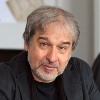
Vladimir Selegey (Chief Editor)
An expert in natural language modeling and computer lexicography; director of linguistic research at ABBYY; Head of Computation Linguistics departments at the Russian University for the Humanities and at the Moscow Institute of Physics and Technology; Chair of the organizing committee of the Dialogue conference; areas of expertise: computational linguistics, development of generalized morphological, syntactic, and semantic models for multiple languages, development of methods for compiling electronic dictionaries, means of visualizing and accessing dictionary content, and methods for authoring and verifying dictionaries against text corpora.

Alexey Baytin
Head of Spelling Correction Group at Yandex; areas of expertise: machine translation, spelling correction, machine learning.
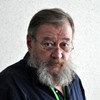
Vladimir Belikov
Russian linguist, ethnographer, sociologist; Doctor of Philological Sciences; Professor of the Faculty of Philology of Moscow State University; areas of expertise: various aspects of theoretical linguistics (typology, comparative studies, semiotics), Russian philology, and a number of related disciplines.

Igor Boguslavsky
Doctor of Philological Sciences; areas of expertise: semantics, syntax, and their interaction, lexicography, logical semantics, and computational linguistics.
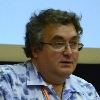
Boris Dobrov
PhD in Physics and Mathematical Sciences; Head of Laboratory of Information Resources at the Computing Research Center of Moscow State University; areas of expertise: unstructured data processing.

Dmitrij Dobrovol’skij
Doctor of Philological Sciences; areas of expertise: Germanic languages and linguistic theory, experimental lexicography.

Leonid Iomdin
PhD in Philological Sciences; a leading researcher and acting Head of Laboratory of Computational Linguistics of the Institute for Information Transmission Problems of the Russian Academy of Sciences; Associate Professor of the Institute of Linguistics of the Russian University for the Humanities; areas of expertise: modern syntax and semantics, computational linguistics, and machine translation.

Eduard Hovy
Associate Research Professor at the Language Technologies Institute of Carnegie Mellon University; Co-Director for Research of the Command, Control, and Interoperability Center for Advanced Data Analysis; Advisory Professor, Department of Computer Science, Beijing University of Posts and Telecommunications, Beijing, China; Regular High-Level Visiting Scientist, International Guest Academic Talents Program for the Development of University Disciplines in China; Adjunct Associate Professor, School of Computer Science, University of Waterloo, Waterloo, Canada; areas of expertise: computational semantics of human language, including text analysis, text summarization and generation, question answering, discourse and dialogue processing, ontologies, annotation, machine translation evaluation, and digital government, data analysis and threat identification.

Irina Kobozeva
Russian linguist; Professor, Doctor of Philological Sciences; areas of expertise: general semantics and Russian semantics, linguistic pragmatics, linguistic aspects of artificial intelligence related to the automatic analysis and synthesis of natural language text.
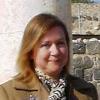
Elena Kozerenko
PhD in Philological Sciences; Head of the Laboratory of Computational Linguistics and Cognitive Technologies of Text Processing, Institute for Informatics Problems of the Russian Academy of Sciences; areas of expertise: computational linguistics and cognitive technologies of text processing.
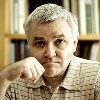
Maksim Krongauz
Professor, Doctor of Philological Sciences; Head of the Russian Language Department, Institute of Linguistics of the Russian University for the Humanities; areas of expertise: structural and applied linguistics, semiotics of the Russian language, semiotics of language and culture, Russian grammar, semantics and pragmatics of reference theory, the theory of dialogue, political discourse, humor theory.

Natalia Loukachevich
PhD in Physics and Mathematical Sciences; Senior Researcher at Computing Research Center, Moscow State University; areas of expertise: technologies of automatic text processing, automatic search, automatic query expansion, automatic headings and clustering of documents, automatic annotation and extracting information from texts.

Diana McCarthy
PhD in Cognitive and Computing Sciences; British researcher working in the field of computational linguistics and natural language processing; Visiting Scholar at Department of Theoretical and Applied Linguistics, University of Cambridge; areas of expertise: computational lexical semantics, word senses and word sense disambiguation, lexical paraphrases and translations, lexical semantic relations, distributional similarity, predicate argument structure, subcategorization frames, diathesis alternations, reading comprehension, corpus linguistics, language pertaining to the environment, lexicography.

Preslav Nakov
Senior Scientist in the Arabic Language Technologies group at the Qatar Computing Research Institute (QCRI), Qatar Foundation; areas of expertise: computational linguistics, machine translation, lexical semantics, Web as a corpus, and biomedical text processing.

Joakim Nivre
Professor of Computational Linguistics, Department of Linguistics and Philology, Uppsala University; PhD in Computer Science; PhD in General Linguistics; leading specialist in the field of statistical parsing based on dependency grammar; areas of expertise: computational linguistics and language technology, parsing and multi-word expressions.

Alexander Piperski
PhD in Philological Sciences; areas of expertise: computational linguistics, corpus linguistics, comparative historical linguistics, Germanic languages.
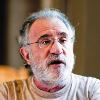
Victor Raskin
Ph.D. in Structural, Computational, and Mathematical Linguistics; a distinguished Professor of Linguistics at Purdue University; the author of Semantic Mechanisms of Humor and Ontological Semantics and founding editor of Humor, the journal for the International Society of Humor Studies; Charter Member, Internal Advisory Board, Center for Education and Research in Information Assurance and Security at Purdue University; areas of expertise: linguistic and semantic theory and their applications, natural language processing and its business applications, ontology, computational semantics, world and lexical knowledge acquisition, humor theory.
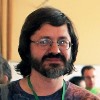
Sergey Sharoff
Associate Professor at the Centre for Translation Studies within the School of Modern Languages and Cultures, University of Leeds; areas of expertise: computational tools assisting translation, lexicography and language learning, corpus collection and technologies for language learning and translation, linguistics, cognitive science.

Tatiana Yanko
Doctor of Philological Sciences; areas of expertise: semantics, lexicography, aspectology, prosody, communication studies, Linguistic analysis of speech.
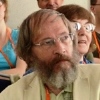
Leonid Zakharov
Russian linguist; areas of expertise: phonetics, speech technologies, linguistic analysis of speech.
